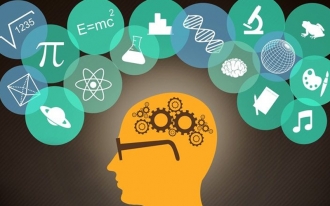- BRAINTRAIN |
- Blog |
- Thinking |
- Developing Logical Thinking

Bogdan Moroz 18.10.2019 2118 Comments
You often hear about the benefits of logical thinking, its incredible power, and possibilities. Self-development platforms invariably recommend trainers for thinking development, and board games fostering systematic thinking have long been revered across cultures.
Why Is Logic Needed and Where Is It Applied?
Logical analysis underpins our perception of the world and permeates all life aspects. The drive to think logically awakens intuitively in early childhood and accompanies us throughout conscious existence.
Logical analysis is a powerful tool for learning new concepts, acquiring skills, and solving complex tasks across domains. Its impact is most evident in exact sciences like mathematics and physics, invaluable in rhetoric or philosophy, but even in casual conversations, you’ll use logic to argue your point, counter, or support an opponent’s view. When advising a loved one, you’ll logically analyze the situation, modeling possible outcomes based on logical principles.
What logical thinking offers in daily life:
- Accurately assessing situations.
- Faster skill and knowledge acquisition.
- Less time spent finding solutions.
- Evaluating others’ conclusions.
- Arguing your perspective.
- Motivating others with sound reasoning.
- Competitiveness in business through effective decisions.
- Saving time and money on ineffective approaches.
Definition and Components of Logical Thinking
Without delving into psychological jargon, it’s key to understand what drives this process and whether logic can be developed like any other skill.
Logical thinking is the process of deriving true conclusions by analyzing information, seeking patterns, evidence, and connections between objects. In other words, it’s working with information and world knowledge to reach accurate conclusions.
Logic employs tools to make solutions faster, more precise, and objective. Ignorance of basic analysis principles can lead to false conclusions, negatively impacting outcomes.
Working with Images
An integral part of logical processes, as many tasks involve mental images containing extensive data about objects, environments, and situational details.
This ability was studied in 1936 by John Raven and Roger Penrose, who developed an effective method to assess mental development and intellectual potential in nearly anyone. Even someone from a developing country with no education or literacy can be accurately evaluated using this test. The secret lies in images hidden in pictures, requiring no reading, counting, or school-based knowledge.
Working with Words
An essential tool in law and oratory, enabling coherent speech construction and guiding audiences to desired conclusions through words. This art, valued since ancient times, gave individuals power over crowds. Developing verbal-logical thinking remains vital today, useful not only in meetings or presentations but also in personal conversations.
Working with Nonexistent Concepts
An equally critical logic component, dealing with imagined concepts and images, finding connections, patterns, and assigning characteristics. This practice prepares the mind to analyze novel, unfamiliar phenomena, spurring exploration of the unexplained.
Key features of logical thinking:
- Logical principles are acquired through experience (personal or observed).
- Logical thinking isn’t innate, though it emerges early, developing or degrading based on training.
- Logical principles can conflict with moral ones, potentially leading to immoral actions for maximal personal gain.
- Cause-and-effect sequences exclude certain outcomes in specific conditions (e.g., no sunburn in cloudy weather).
Learning to Think Logically
Like any thinking type, logic requires constant development through training and challenges. Lack of ability here isn’t innate but a result of insufficient mental development focus. The most common, convenient method today is online thinking trainers, which, with minimal time investment, deliver desired cognitive load without needing partners or groups. This activity is engaging, educational, and varied to prevent boredom.
If you’re extroverted and often with company, dedicate time to collective thinking development, like a logical game encoding song lyrics, where competing teams quickly guess songs from precisely described scenarios.
Taking IQ tests not only signals your mental development but serves as a reliable trainer, making your brain work and enhancing cognitive processes, regardless of results.




